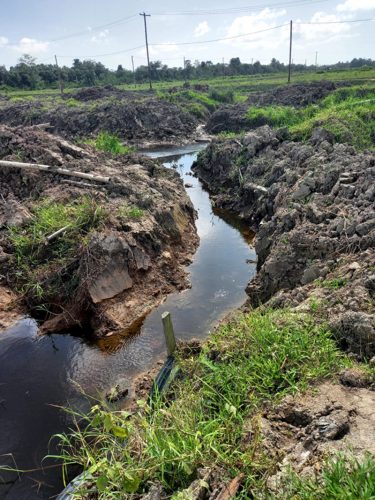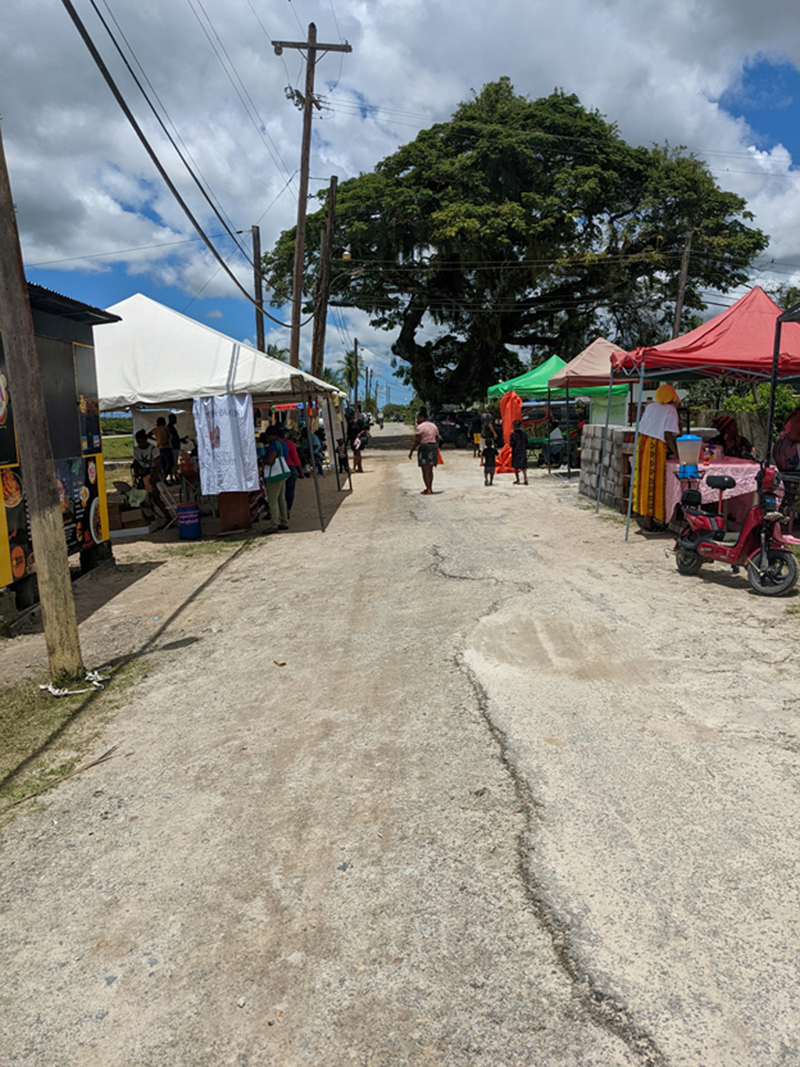Back in December 2020 when the Mocha/Arcadia Multi-Purpose Agricultural Co-operative Society hosted its first Market Day, the event was intended to both shine a light on the success of residents of the community in creating modest agricultural ventures that could serve as income subsidies and to provide a service to residents of neighbouring communities.
The initiative attracted the participation of enthusiastic members of the predominantly African-Guyanese East Bank village where farming on an abundance of backlands had become the community’s primary economic activity and as well, an object of collective pride. The patronage which the regularly held outdoor market has attracted from customers along the East Bank and even from communities in the capital had won both the farmers and the administrators of the cooperative, much praise from both inside and outside the community.

As a regular visitor to the Sunday markets, the Stabroek Business had become intimate with the event and its significance, noting particularly, the incremental development of a ‘project’ that had brought the tucked away East Bank community into a significant measure of public limelight.
There had always been land management-related challenges associated with the project since, even at the best of times, drainage and irrigation issues placed restraints on the growth ambitions of the farmers. Over time, they have been compelled to wait out the consequences of heavy rainfall that left the land inundated and in some instances wreaked havoc with crops ‘trapped’ under unmoving water. Official complaints have arisen aplenty but like so many other challenges, remedy has had to queue up behind the reality of slothful local authorities at both the community and central government levels.
Against odds that had long been staring it in the face, the community took the decision to stage its most recent Farmers’ Market last Sunday. It paid the price in an alarming ‘stay away’ by most of the resident farmers, tired it seems, of a condition of being on a ‘hiding to nowhere’ and by supporters of the Market whom, it seemed, may have been forewarned that there was evidence that the ‘Market,’ this time around, was unlikely to live up to its customary level of patronage.
What occurred on Sunday appeared to be a collective response by the farmers in the community whom, it appeared, have come to terms with the fact that they had hit a proverbial wall. Major developments along the East Bank, including major road works and housing construction, had, it appeared, compromised existing drainage and irrigation infrastructure in some communities including the agricultural lands being utilised by the Mocha farmers. This, it would appear, has compromised the customary flow of water, creating drainage and irrigation challenges that now face the farmers of the Mocha/Arcadia community.
When the Stabroek Business spoke with Rayburn Jones, Chairman of the Multi-Purpose Cooperative Society, of which the farmers are members, he appeared less than convinced that solutions to the protracted inundation of the lands are around the proverbial corner. The problem, it seems, he says, has been the subject of official contemplation at both the local and state levels and according to Jones it does not seem that the problem is anywhere close to being resolved. Visits to the community by teams of state functionaries, including government ministers, have failed to resolve the problem. Some farmers with whom this newspaper has spoken have taken the position that the continuity of the farming cooperative is not particularly high on the list of official priorities.
What had begun with an initiative that had won the support of both the Food and Agriculture Organization (FAO), and the Inter-American Institute for Cooperation on Agriculture (IICA), now appears to be hanging in the balance. The priority, according to Jones, ought to be to attract the urgent attention of central government to moving to take the necessary remedial action that would reverse the flooding of the lands and save what was once a thriving, even successful community farming project.








